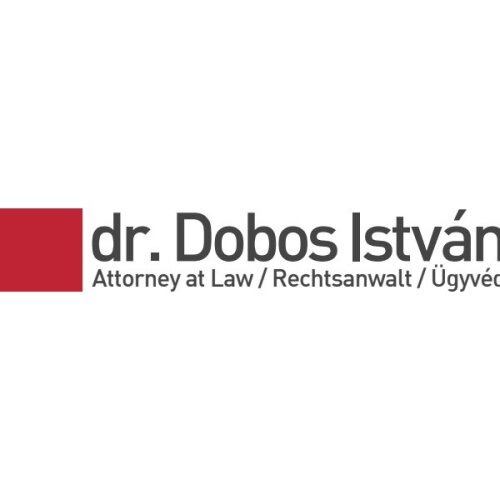Best Securities Lawyers in Hungary
Share your needs with us, get contacted by law firms.
Free. Takes 2 min.
Or refine your search by selecting a city:
List of the best lawyers in Hungary
About Securities Law in Hungary
Securities law in Hungary is primarily regulated by national legislation and European Union directives. The Hungarian financial market is overseen by the National Bank of Hungary (MNB), which is responsible for ensuring the smooth operation and stability of the financial system. Securities include a range of financial instruments such as shares, bonds, and derivatives. The market operates under a legal framework designed to protect investor interests, maintain fair trading practices, and promote market transparency.
Why You May Need a Lawyer
Engaging a lawyer specialized in securities law can be crucial in several situations. Common reasons for seeking legal advice include:
- Launching an initial public offering (IPO) or other financial instruments.
- Compliance with regulatory reporting requirements and corporate governance standards.
- Disputes arising from securities transactions or shareholder rights issues.
- Investment disputes involving allegations of fraud or misrepresentation.
- Assistance in mergers and acquisitions that involve securities transactions.
- Understanding complex regulatory changes affecting securities.
Local Laws Overview
Several key pieces of legislation govern securities in Hungary:
- The Capital Markets Act governs public offers and the trading of financial instruments.
- The Investment Services Act outlines the licensing and operation of investment firms.
- The Securities Act, which addresses the issuance and registration of securities.
These laws, supported by regulations issued by the MNB, seek to ensure that investment firms conduct their business in a manner that fosters trust in the capital markets system.
Frequently Asked Questions
What is the role of the National Bank of Hungary in the securities market?
The National Bank of Hungary (MNB) acts as the supervisory authority, ensuring that firms operate according to the law and maintaining the stability and integrity of the financial markets.
What are the key regulations I must comply with when issuing securities in Hungary?
Issuers must adhere to the Capital Markets Act, which includes requirements for prospectuses, disclosures, and other compliance checks before issuing securities.
How can I resolve a dispute involving securities transactions?
Disputes can often be resolved through negotiation or mediation, but significant disputes may require litigation or arbitration, often with the assistance of a legal expert in securities law.
Are there specific qualifications for lawyers practicing securities law in Hungary?
While there are no specific qualifications, attorneys who specialize in securities typically have extensive experience and knowledge in financial markets and related regulatory frameworks.
What should I look for when choosing a securities lawyer?
Consider experience in securities law, familiarity with local and EU regulations, and their track record in handling similar cases.
How does the Hungarian securities market relate to the broader European Union market?
Hungarian securities regulations align with EU directives to ensure consistency and cooperation across member states, facilitating cross-border investments and market participation.
What are the penalties for non-compliance with securities laws in Hungary?
Penalties vary depending on the nature and severity of non-compliance but can include fines, suspension of trading activities, and reputational damage.
How are securities registered in Hungary?
Securities typically must be registered with the Hungarian Central Securities Depository under the regulation of the MNB to be legally offered in Hungary.
What are the responsibilities of companies listed on the Hungarian stock exchange?
Listed companies have ongoing disclosure obligations, including regular financial reporting and notifying investors of significant corporate changes.
Are foreign investors subject to different regulations in Hungary?
Foreign investors are generally subject to the same regulations as domestic investors, although certain additional reporting or registration requirements may apply, depending on the nature of the investment.
Additional Resources
For further assistance, you may consider these resources:
- National Bank of Hungary (MNB) - for regulatory guidance.
- Budapest Stock Exchange - for market information and listings.
- Hungarian Financial Supervisory Authority - for compliance assistance and reports.
- Professional associations like the Hungarian Bar Association for finding legal professionals.
Next Steps
If you need legal assistance in securities, consider these steps:
- Identify and document your specific legal needs and concerns.
- Research and choose a lawyer or legal firm specialized in securities law.
- Schedule a consultation to discuss your case and explore the legal options available to you.
- Work with your lawyer to develop a strategy, whether it’s for compliance, dispute resolution, or another securities-related matter.
Taking informed action with the right legal support will help protect your interests in the Hungarian securities market.
Lawzana helps you find the best lawyers and law firms in Hungary through a curated and pre-screened list of qualified legal professionals. Our platform offers rankings and detailed profiles of attorneys and law firms, allowing you to compare based on practice areas, including Securities, experience, and client feedback.
Each profile includes a description of the firm's areas of practice, client reviews, team members and partners, year of establishment, spoken languages, office locations, contact information, social media presence, and any published articles or resources. Most firms on our platform speak English and are experienced in both local and international legal matters.
Get a quote from top-rated law firms in Hungary — quickly, securely, and without unnecessary hassle.
Disclaimer:
The information provided on this page is for general informational purposes only and does not constitute legal advice. While we strive to ensure the accuracy and relevance of the content, legal information may change over time, and interpretations of the law can vary. You should always consult with a qualified legal professional for advice specific to your situation.
We disclaim all liability for actions taken or not taken based on the content of this page. If you believe any information is incorrect or outdated, please contact us, and we will review and update it where appropriate.
Browse securities law firms by city in Hungary
Refine your search by selecting a city.

















